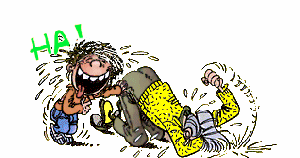Red:
I don't know where or when or whether you have any formal accounting or economics training, but you clearly haven't enough of it to be taken seriously, credibly when remarking on the valuation of property.
At the point of something being sold/purchased, most especially pre-owned items, the price at which it sells fixes the item's fair market value; thus at the the point in time at which the sale occurs,
the sum at which it's sold/purchased is its value, is what it's worth. Prior to the moment of the sale, the item's value/worth is but a mere estimate. After the moment of the sale, the item's worth/value again becomes but an estimate, until it is again sold, at which time it's worth will again be fixed at whatever be the most recent selling price.
Before and after a transaction event, the quantity of cash one estimates one can obtain in exchange for the item is its fair market value. The transaction event itself establishes an items actual value at a point in time.
A sale of property is nothing other than the conversion of one's resources into cash. Cash, because it's our medium of exchange, is the only property whereof the face value (the quantity appearing on currency's face) equals its worth at a given point in time. That is why folks have no compunction about exchanging, say, two nickels for a dime.
When you, I or anyone sells property, one declares tacitly that one values cash more than one values the property sold.
- How much cash is the property worth prior to the sale? There's no telling, but one can estimate its worth.
- How much cash is it worth at the time of the sale? Whatever one sells it for.
- How much case is it worth immediately after the sale? There's no telling, but one can estimate its worth. Sell it to a new party and one'll find out exactly what it's worth. Maybe its value will have fallen from what one just paid; maybe it won't have fallen. One must complete the new transaction to find out.
- When someone says "This object is worth $XXX," they are merely estimating a selling price; the person is stating an appraised value based on his/her knowledge of the item and the market for it. If one sells the item for a sum less/more than the noted $XXX, the appraiser's estimate was off by whatever be the difference between $XXX and the actual selling price.


